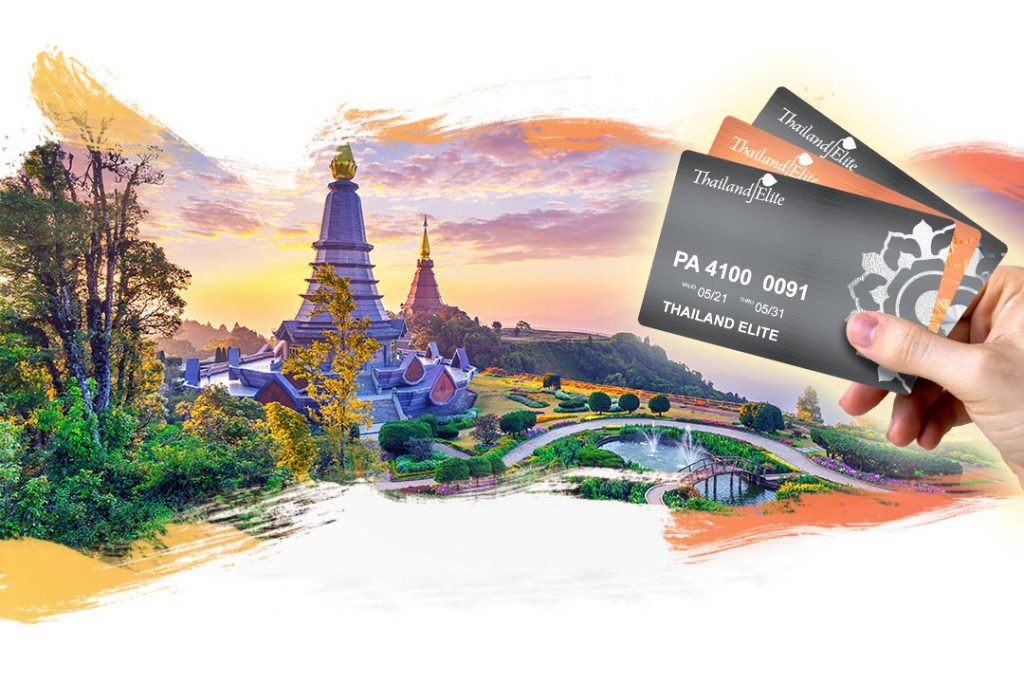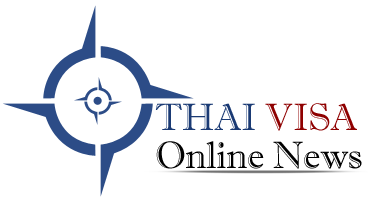Home

About Thai Visa News
Created in 2011, ThaiVisa News provides immigration information, immigration news, and travel guide and updates for people wishing to visit Thailand. The gateway to detailed information and requirements about Thai Visa application, whether researching travel opportunities, seeking information on travel restrictions, or looking for advice and assistance on how to move into Thailand. The comprehensive information of this website means that all answers to your immigration questions are at your fingertips.
Latest News

Over the past years, the Kingdom of Thailand has seen an increase in the number of foreigners who come to the country to participate in vast independent voluntary activities. There are many non-profit organizations out there that offer this kind of work. While it may be inevitable to deal with the Thai authorities during your stay, one must understand that proper procedure which adheres to the legalities imposed in Thailand must be set in place to avoid getting yourself into any kind of trouble. Taking into account considerations on doing the reasonable steps to satisfy the legal requirement, working in Thailand as a volunteer can be very rewarding.
Important Reminders to Become a Foreign Volunteer WorkerIf you wish to take part in a voluntary activity in Thailand, you must consider 2 important things:
Foreigners who want to engage in a charitable or voluntary activity in Thailand need to have a valid Non-Immigrant O visa. It is advised to contact a Thai consulate in your home country to find out about the process involved in the visa application process.
The holder of a Non-Immigrant O visa is granted with an initial period of stay not exceeding 90 days unless otherwise instructed by the Office of Immigration Bureau. Depending on the length of time the foreigner needs to participate in the voluntary work, they can obtain an extension of 1 year stay on a discretionary basis.
Getting a Work PermitEven if foreign volunteer workers are not paid for the activity that they are engaged to in Thailand, it is still legally required for them to have a proper work permit. In many cases, they may be staying in the country originally for tourism purposes and then eventually be involved in a voluntary activity. While they may think that they can get away with it without having to apply for a work permit, the risk of getting into a situation that can result in fines, jail, deportation and even blacklisting does not make a very good picture.
In order to obtain a valid visa and a work permit, there are evidences required to support your application for the purpose of volunteering. The following are documents from the organization that need to be presented:
- Sponsor letter which must be registered in Thailand.
- Registration and license.
- List of shareholders
- Board of Directors
- Profile and details of operation
- Map indicating the location
- Balance sheet
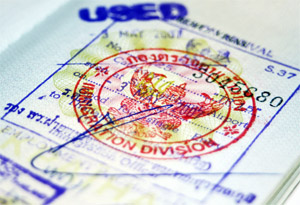
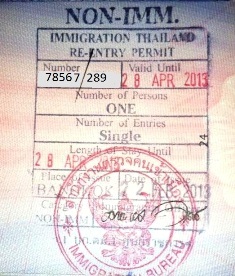
The following questions highlight when and when you don't need to secure re-entry permit:
- Am I allowed to travel outside Thailand if I am holding a marriage visa, retirement visa, permanent residency or work permit?
- What if I have a single entry business visa and I wish to visit other countries yet I still need to go back to Thailand, should I apply for a new visa?
- I arrived in Thailand using Visa on Arrival. I flew outside the country after a couple of days, with an intention to fly back to Bangkok and stay. Do I need re-entry permit?
Many foreigners overlook the importance of securing Re-entry permit before traveling outside the country which often result to cancellation of current Thai visa or even work permits. To avoid wasting resources like time, money, effort and going through another visa application and work permit processing, it would help expats to identify when one should secure re-entry permit.
Re-entry permit is a document in Thailand issued to foreigners who are holding single entry business visa, long term visas (such as: marriage visa and retirement visa which has already been extended to one year), permanent residency or work permit and would like to travel outside of Thailand for a short period with the intention of returning and continuing your current Thai visa where you had left off. This document provides authorization to the holder to leave the country for a few days, come back again to Thailand within your visa validity, without needing to get another visa. This must be obtained prior to leaving Thailand so holder won't lose visa status/work permit upon departure.
If you leave Thailand and return without a re-entry permit your one year visa will be invalidated and you need to start the process again from scratch. Ensure that you have applied for a single or multiple re-entry permit before you leave Thailand.
Visa Exemption
For foreigners who entered Thailand under the Visa Exemption Rule you are not qualified to obtain a reentry permit because you do not have a Thai visa.
Where to get Re-entry Permit?
You can secure Re-entry permit at Suvarnabhumi airport immigration check point or at the Immigration office in Bangkok.
Can I Apply Online?
Application for Re-entry permit must be made in person.
Requirements
- Passport or travel document (1 original and 1 copy)
- One recent photograph (4X6 cm)
- Re-Entry application form (TM-8 form)
- Application fee
Process
Application must be made in person one or two days prior to your departure.
Re-Entry Permit Fees
- Single-Entry Re-Entry Permit = 1000 THB
- Multiple Entry Re-Entry Permit = 3800 THB
Any long-term visas or work permit holders are allowed to travel outside Thailand as long as re-entry permit is secured prior to travel.
If a foreigner holds a single entry business visa, by securing re-entry permit there is no need to apply for a new visa because upon returning to Thailand the same visa can be used.
Foreigners who arrived in Thailand using Visa on Arrival (i.e. China, India, Russia, Taiwan nationals), securing re-entry permit is not necessary even though the holder will re-enter Thailand within that 15-day visa time-frame. When you leave the country, you would have to get a new Visa on Arrival on your next entry. There is no limit to how many times you can do this (Visa on Arrival).
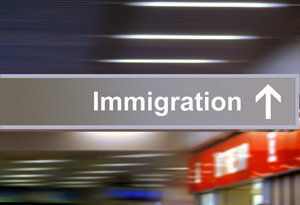
 It is an immigration rule that foreigners are not allowed to overstay in Thailand or else face the verdict of overstay fine at 500 THB per day maximum 20,000 THB, imprisonment or deportation. But does the same rule applies to the alien children who overstayed?
It is an immigration rule that foreigners are not allowed to overstay in Thailand or else face the verdict of overstay fine at 500 THB per day maximum 20,000 THB, imprisonment or deportation. But does the same rule applies to the alien children who overstayed?
Overstay fine exemption for children is an internal regulation from Immigration Bureau. Mentioned in the Section 84 of Thai Immigration Act 2522, "settlement rule or any conditions as the Settlement Commission may deem proper.” [1]
The general rule is that children below 15 years old who overstayed in Thailand will not be collected with fine. And when you and the child booked to fly out of Thailand, upon exiting the country via airport, the kid just has to go up to the overstay counter but is exempted of paying the fine.
Overstay Fine Exemption Doesn't Mean Non-ViolationWhy get a proper visa for your child when she can get away without it? When she doesn’t have to suffer the punishment, what prevents you as the child’s parent from taking the easier route?
For children who are long term overstayers in Thailand, parents have reason behind it. Since child is minor this responsibility lies on the parents. Maybe it’s about saving the cost, time, effort for visa application. Or maybe it’s because of lack of proper visa by the parents themselves (illegal status). By this explicit non- charge for children who overstay some parents might think it is not necessary to secure proper Thai visa for the kid. Or since kids can get away with the charges, filing a child’s visa is a choice.
It is important to obtain proper visa/extensions for children or take the effort of legalizing a child’s immigration status.Despite exemption from fine or criminal charges, there are direct and indirect consequences when children overstayed. One of them is to avoid the hassle as there had been reports of inconsistent implementation of this “non-payment of overstay fine for children” among Immigration Police Officers across Thailand especially if the child is exiting via any land border (border crossing).
Direct Consequence of Overstay
While adults automatically get charged for detention, overstay fine or deportation upon being caught in a check up stop and were asked for passports and valid visas, police officers will let go of the child and exempt the child from fine. Overstay issue for whatever reason and length is an offense of the Immigration Act 2522 regardless that the person involved is a minor (only 15 years old and below). This means that the child is staying illegally in Thailand. Upon exiting the country, the child has to go through the overstay kiosk and his passport will be stamped with overstay. With the parents’ negligence, the child becomes involuntary illegal immigrant.
Some Effects of Overstay are Not Felt or Realized BeforehandWhen a child overstays in Thailand and cleared his overstay by exiting the country, any previous overstay doesn’t affect future visits to Thailand nor future application for Thai visa. But the history of overstay offense might contribute in trying to enter in another country such as US, UK, Canada, Australia. In the event that the child applies for an entry visa to said countries, any past immigration offense, history of travel, applicant’s credibility will be put into consideration.
Sending a child to school in Thailand would require valid visas or extensions upon enrollment. Before accepting the child, school would ask for legal documents.
If a child is an illegal immigrant in Thailand, he is not receiving any health or security benefits from the government. When emergency happens such as accident, or when the child gets sick, he cannot resort to Thai government funds. Any insurance claim can be denied on the grounds of overstaying. Any probability of getting an access to child’s home country's health/security/benefit’s claim decreases.
Make sure your child can legally stay in Thailand by securing appropriate visa. Though there is no direct sanction for children who overstayed, abiding by the law would avoid immigration problems in the future.
1. Section 84 of the Immigration Act, B.E. 2522 states that, “In all offenses under this Act, except the provisions of Section 62 Para.1 Section 63 , 64, 71 and 82 Para.2. The settlement Commission, consisting of the Police Department’s Director General or Representative, the Public Prosecution Department’s Director General or Representative, and the Immigration Division’s Commander or Representative, as the, members shall have the authority to assign duty of settlement to the Inquiry Official or the competent official by fixing a settlement rule or any conditions as the Settlement Commission may deem proper. When the offender has paid the fine as stipulate, the case shall be deemed settled under the Criminal Procedure Code. When the offender has paid the fine as stipulate, the case shall be deemed settled under the Criminal Procedure Code.”

The ministers and tourism authorities of four ASEAN nations agreed to collaborate on a common smart visa system last June 5, 2013 at the 22nd World Economic Forum (WEF) on East Asia 2013. This is an effort to enhance tourism and foster economic growth in the East Asian region.
 Tourism leaders from Myanmar, Cambodia, Indonesia and The Philippines signed the "Statement of Intent on Smart Visa" held at Myanmar International Convention Centre in Nay Pyi Taw, Myanmar during the World Economic Forum on East Asia 2013. This new system is a single visa programme for tourism traveling on the countries mentioned above. Through the common smart visa system, movement of tourists across borders or traveling from one country to another will be facilitated more efficiently as compared to the traditional visa application. The new common visa system brings convenience to travelers in terms of visa processing.
Tourism leaders from Myanmar, Cambodia, Indonesia and The Philippines signed the "Statement of Intent on Smart Visa" held at Myanmar International Convention Centre in Nay Pyi Taw, Myanmar during the World Economic Forum on East Asia 2013. This new system is a single visa programme for tourism traveling on the countries mentioned above. Through the common smart visa system, movement of tourists across borders or traveling from one country to another will be facilitated more efficiently as compared to the traditional visa application. The new common visa system brings convenience to travelers in terms of visa processing.
The coordination of these 4 countries through common smart visa is geared towards the growth of the tourism and travel sector. Once implemented, more travelers are expected to come thus creating investment opportunities. This will promote labor in ASEAN region and will increase the region’s GDP. This new system will create economic integration for ASEAN Economic Community in 2015 since it promotes visa facilitation for travel.
The members of East Asian region (Myanmar, Cambodia, Indonesia and The Philippines) could maximize the benefits of tourism activities through "Statement of Intent on Smart Visa". By adapting a timely system, taking advantage of technology, and coordination with other East Asian nations, we are indeed heading towards a stronger ASEAN.


Thai Retirement visa holders who decided to move to Thailand and live on permanent basis may bring their personal effects and household goods duty free from their home countries. After permit to stay for a year in Thailand has been granted, belongings will not be taxed. Exemption to required taxes and duties for shipping these household goods from another country into Thailand only applies to second-hand or used merchandises. Second-hand items include things used by the retiree importers at their former country of residence. Brand new household goods shipped in Thailand are subjected to the necessary taxes and tariff provided by law which is 20% import duty plus 7% value-added tax.
The origin of shipment should be the same as the origin of the importer. For example, if the owner of the household goods being transported into Thailand used to live in UK, UK is regarded as their place of origin; thus the household goods they are bringing in should have also originated from UK.
Retirement visa holders may bring household items from their home countries within a six-month period from the date of entry to Thailand. The household goods and merchandise are not allowed to be shipped before the arrival of the importers, nor six months after. If your personal items are due to arrive in Thailand more than six months after the entry date, you should inform Thai Customs about this at least two months before the six-month deadline.
The import of electrical devices such as used electrical machines or appliances like air conditioners, television sets or microwave ovens shall be limited to one unit only. Thus, if the importer brings in more than one unit, then the excess shall be subjected to taxes and duties. Exception to this one-unit rule applies if the importer is a whole family. A whole family planning on changing residence and moving to Thailand permanently will be given the privilege of bringing into the country two units of each item. Any unit in excess of this two-piece limit is already taxable. During an excess, Custom officials may levy a lower rate since the importer is a whole family.
Documents Needed:
You will need your passport, retirement visa for Thailand, inventory list showing the brand name, model & serial numbers, and your shipping documents. It will be helpful to have the original sales receipt of all the electronics items. When the shipment arrives the Thai Custom official will ask to see your original passport. Typically the shipping company that you use will coordinate with the Thai Customs officials in clearing your household goods through the customs process.
Clearance Procedures:
- The importer submits documents for inspection at the Customs Department/port of entry.
- Customs officials complete importation forms, determine eligibility, and assess duties, if any.
- Importation forms are returned to the importer bringing goods into the country, who then takes them to be recorded and pay customs duties, if any.
- The importer collects items from the port of entry.


This would discuss the gray areas on Thai Work Permit, Internet-based work or business, voluntary declaration of income and taxes to Thailand.
Scenario 1:I am considering moving to Thailand and living there for about a year. The visa is not the problem, the problem however is how I make money. I work completely over the computer, and make a living that way. I don't have any employees and do not make enough money to employ any. I read that in order for me to have this business that I must hire people? Like if I were to live in Thailand, would me having this business be illegal? How does it work? I cannot seem to find any clear cut answers defining internet income. Please, can you help?
Scenario 2:I work offshore in the Oil & Gas industry. They make new contract every time they need me for a job. This means I work on a casual contract basis, with contracts lasting about 30-40 days (the duration of each single job). On average, I work offshore 40 days, then I come back to Thailand for 3-4 weeks of vacation, then I go back to work, and so on. I use to enter in Thailand as a tourist at the moment. What I would like to do, is to open a bank account in Thailand, getting paid by my company on this account, and then declare my income and pay taxes to Thai authorities. If I need to apply for a visa too, that would be ok for me.

On the first scenario, it was stated that he is earning money and getting paid by working online. He could work wherever he want, and whenever he want because it is an internet-based work or business, and he chose to stay in Thailand. Several issues were raised, namely: 1.) Is the solely employed internet-based work legal in Thailand? 2.) In operating an internet-based business in Thailand, does it necessarily need to employ people? 3.) Does he need a work permit? 4.) Does he need to pay income tax to the Revenue Department in Thailand?
On the second scenario, it was clearly defined that the source of income is offshore, he is working offshore, but he prefers to stay in Thailand under tourist visa. He wants to open a bank account, and declare his income and voluntary pay taxes in Thailand. He also wants to know if he can apply for a different visa, since he is currently on tourist visa. Different issues were identified such as: 1.) If he is technically working offshore and the source of income is offshore, can he declare his income in Thailand and voluntarily pay taxes to Thai authorities? 2.) Under tourist visa, can he open a bank account in Thailand? 3.) What would be the alternative type of visa for him if he wishes to stay longer in Thailand?
Working in Thailand
A foreigner will only be allowed to work in Thailand if he has met the following:
- he has a valid visa;
- he has a valid work permit issued by the Department of Employment, Ministry of Labor;
- he is employed in an occupation that does not violate the Alien Employment Act
Under the Working of Alien Act, B.E. 2551, "work" is defined as "physical and mental activities, whether or not for wages or other form of compensation. Even volunteer or charity work requires a work permit in Thailand."
Thus, for the question “would a foreigner engaging in an internet-based work conducted in Thailand requires a work permit?” affirms that any cloud based income generating activity is considered as a work under the Alien Employment Act. Thus, any foreigner engaging Internet-Based work or Business conducted in Thailand requires a work permit. This is true even though the income is from abroad, or that the job has no physical office location in Thailand.
If you are conducting a business in Thailand in this similar kind, it is necessary to register the company if you wish it to operate legally. Employing people, especially foreigners necessitate for the company to be legally registered. Work permit processing for foreign employees would need the corporate documents.
If you have been reported working on the internet without a work permit, you are subject to illegal activities such as providing services/engaging work without a permit. Work permit violation is a criminal offense and penalties include imprisonment of not exceeding 5 years or a fine from 2,000 THB to 100,000 THB, or both. A company or employer that hires a foreigner without a valid work permit is subject to a fine from 10,000 THB to 100,000 THB for each foreign worker/employee.
Thai Tax System
Does he need to pay income tax to the Revenue Department in Thailand?
Since he is a foreign national living in Thailand and generates his income by working in Thailand, he is subjected to pay personal income tax, even if the work he does is internet-based. Remember that he is physically located in Thailand and he is exerting energy and using knowledge of which under Alien Employment Act, quantifies work. He does work, and is liable to pay tax. Take note, that the ability to pay tax requires to have the right kind of visa and a work permit.
When does a foreigner NOT subjected to pay income tax? Only on the following cases a foreigner is not liable to pay income tax:
- A foreign national who stay in Thailand for in a tourist visa spending his own savings
- A retired person with a pension from overseas
Generating income by rendering service or knowledge in Thailand, you are subjected to personal income tax, even if the work you do is for clients based outside Thailand, or the work is internet-based.
Who are considered as taxable person then? Any person residing in Thailand for a period or periods aggregating more than 180 days in any tax (calendar) year (also referred to as resident of Thailand) is liable to pay tax on income from sources in Thailand on a cash basis, regardless where the money is paid, as well as on the portion of income from foreign sources that is brought into Thailand.
A non-resident (person residing in Thailand less than 180 days) however, is subjected to tax only on income from sources in Thailand.
Opening a bank account in Thailand would require a long term visa (such as non-immigrant visa). Most banks in Thailand won't allow opening an account on tourist visa.
On the 2nd Scenario, alternative type of visa for him could be Non-Immigrant Visa or Retirement Visa (if he is more than 50 years old).
If your income has been earned outside Thailand, you can’t declare your income and pay your taxes here.
Thai Elite Visa
Thailand Elite visa is a special visa aimed for high networth businessmen, digital nomads, retirees, investors, high income individuals, and families looking to move in to Thailand. The Elite member or card holder has special privileges such as VIP treatment at the airport, exclusive spa and golf courses, special discount at major department stores and shopping malls, elite personal assistance, and many more. To learn more if Thailand Elite Visa is the most suitable long term visa for you, just click the link below.
